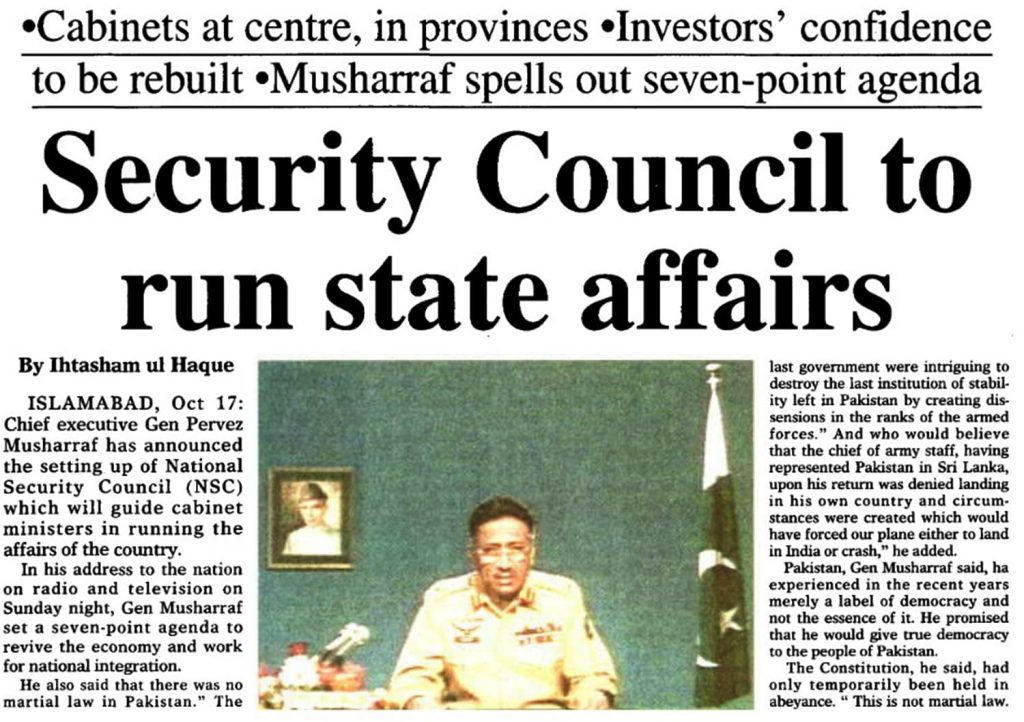In 1999, the military once again became the sole master of the affairs of the country. On October 12, 1999, General Pervez Musharraf, seized the control of the civilian government of publicly elected Prime Minister Nawaz Sharif. In an address on the nation on 13 October 1999, General Pervez Musharraf announced that PML(N) government had been removed and the Armed Forces had moved in and taken control of the affairs of the country.

On 14 October, he proclaimed emergency throughout Pakistan and assumed the office of Chief Executive. He proclaimed that the Constitution would be held in abeyance but the president would, however, continue in office, Parliament and all provincial assemblies stand suspended.
In 1999, the military once again became the sole master of the affairs of the country. On October 12, 1999, General Pervez Musharraf, seized the control of the civilian government of publicly elected Prime Minister Nawaz Sharif. In an address on the nation on 13 October 1999, General Pervez Musharraf announced that PML(N) government had been removed and the Armed Forces had moved in and taken control of the affairs of the country. On 14 October, he proclaimed emergency throughout Pakistan and assumed the office of Chief Executive. He proclaimed that the Constitution would be held in abeyance but the president would, however, continue in office, Parliament and all provincial assemblies stand suspended.
A number of petitions had been filed by Nawaz Sharif and other PML(N) leaders invoking Article 184(3) of Constitution of Pakistan, challenging the military takeover on 12 October 1999 and seeking restoration of the assemblies.

Following the ouster of Muhammad Nawaz Sharif on October 12, 1999, the Supreme Court has moved through Zafar Ali Shah case “Zafar Ali Shah vs General Pervez Musharraf”. The Supreme Court led by Justice Irshad Hasan Khan and also including Justice Iftikhar Muhammad Chaudhry not only “rejected” the petition but also empowered the fourth dictator of Pakistan to himself amend the constitution.
It was held by this Court that on 12th October 1999 a situation arose for which the Constitution provided no solution and intervention by the Armed Forces through and the extra-Constitutional measure became inevitable and the said act was validated on the basis of the doctrine of state necessity and the principle “Salus Populi Suprema Lex” as embodied in Begum Nusrat Bhutto’s case. It was further held that the 1973 Constitution still remains supreme law of the land subject to the condition that certain parts thereof have been held in abeyance on account of state necessity.
